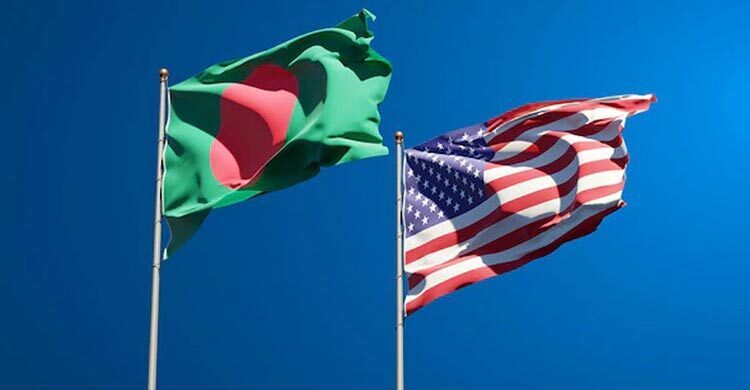Which direction will Dhaka-Washington ties take?

The future of Bangladesh-US relations has become a topic of intense discussion following Donald Trump’s recent election victory.
With his return to power, questions are being raised about how the Trump administration’s policies might shape the bilateral relationship, particularly given the evolving political dynamics in Bangladesh and South Asia.
Trump, a known ally of Indian Prime Minister Narendra Modi, is stepping into office at a time when former Bangladeshi Prime Minister Sheikh Hasina remains in exile in India.
Meanwhile, interim government head Dr Muhammad Yunus, known for his close ties with international circles, including the Republican establishment, has expressed optimism about fostering stronger ties with the US.
US-Bangladesh ties amid political transition
During the election campaign, Trump stirred conversations with a tweet condemning the persecution of minorities in Bangladesh. Analysts largely viewed this as a strategic move aimed at appealing to specific voter blocs, but it nonetheless raised questions about how the Trump administration might engage with Bangladesh moving forward.
Under the Biden administration, Bangladesh-US relations faced strain over human rights issues, electoral integrity, and governance concerns.
The situation became particularly tense following the US announcement of visa restrictions targeting individuals undermining Bangladesh’s democratic processes. However, the political shift in Bangladesh, with Dr Yunus leading the interim government, has seen a thaw in relations. Yunus quickly congratulated Trump on his election victory, expressing hope for enhanced cooperation.
Policy continuity or change?
Foreign affairs experts believe that the core US policy towards Bangladesh is unlikely to see significant shifts under Trump.
Md Touhid Hossain, Foreign Affairs Adviser to the interim government, noted that US interests in Bangladesh transcend partisan politics. "The United States values Bangladesh's strategic role in South Asia, particularly within the Indo-Pacific framework. Any changes will be incremental rather than drastic," he said.
Similarly, former Foreign Secretary Sabbir Ahmed Chowdhury emphasised economic interdependence as a stabilising factor. “The US is Bangladesh’s largest foreign investor and export destination. While Trump has a strong rapport with Modi, economic pragmatism will guide US engagement with Bangladesh,” he said.
Challenges and opportunities ahead
The Trump administration’s approach to Bangladesh may be shaped by broader regional dynamics, particularly India’s influence. Modi’s relationship with Trump could influence US policies, but experts believe that Bangladesh’s significance—both strategically and economically—will ensure continued attention from Washington.
Professor Amena Mohsin of International Relations department at Dhaka University highlighted the balance the US will aim to maintain.
“Trump might focus on strengthening ties with India, but Washington cannot ignore the growing importance of Bangladesh. The US will likely evaluate Bangladesh's political climate, economic potential, and public sentiment before making any major moves,” she explained.
“The Trump administration will likely evaluate the current political culture and public sentiment in Bangladesh. However, I do not anticipate a significant shift in their stance on Bangladesh. There is no basis for a vengeful approach in US-Bangladesh relations, as Bangladesh has neither caused harm nor aligned too strongly with any opposing side, she said.
A test of diplomacy
As Bangladesh navigates this new chapter in its relationship with the US, the interim government faces the dual challenge of consolidating domestic stability while fostering international partnerships. Trump's return to the White House may not herald a dramatic shift in Bangladesh-US ties, but it presents an opportunity for recalibration.
For now, policymakers in Dhaka remain optimistic about leveraging their strategic importance to maintain balanced and constructive relations with Washington, regardless of who occupies the Oval Office.

